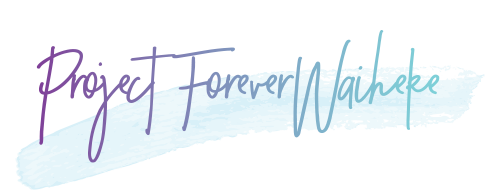Auckland Council is appealing to boaties and leisure craft users to be waste-wise on the water over the holiday season to conserve our oceans and coastlines.
“By planning ahead, boaties can minimise waste before heading out on to the water.”
Top summer waste-wise tips for boaties
Here are our top tips for being waste-wise in the Gulf this summer:
Avoid single-use bottled water -- fill up and bring reusable water bottles on your trip.
Keep a covered rubbish bin on board. Make sure all your litter, particularly plastics, makes it into the bin. This includes cigarette butts and fishing line. Dispose of your rubbish responsibly once you are back on land.
Use a separate covered bin and recycle as much as you can of glass bottles and jars, aluminium cans/empty aerosols, steel and tin cans, plastic containers labelled 1-7, paper and cardboard, and liquid paperboard cartons (e.g. used for milk and juice). Put these items in your kerbside recycling bin once onshore again.
Remove any unnecessary packaging before you head to sea. Re-pack snacks such as potato chips, nuts, or dried fruits into reusable containers and leave the soft plastic packaging behind. Avoid plastic wrap by wrapping your sandwiches in reusable beeswax wraps or storing them in reusable containers.
If you see rubbish floating by, scoop it out of the sea, even if it's not yours. It’s just one of the things you can do to Be A Tidy Kiwi.
Fish heads and frames have a lot of food on them. If you don't want them, give them to someone who does! Head to Free Fish Heads NZ to find out more.
Fish with reusable lures and hooks. Try to avoid using homemade, single-use lures, made with soft plastics.
Save your shellfish or fish scraps to make your own berley, rather than buying berley in a plastic bag.
Caring for our Coastlines
According to Camden Howitt from Sustainable Coastlines, after collecting more than 1.5 million litres of rubbish from their coastal clean-ups, they have identified a list of top offenders found in the ocean, on beaches and in estuaries. Howitt encourages Aucklanders to especially take care in disposing of these items, which they have dubbed ‘The Filthy Five’:
Plastic of unknown origin - these are bits broken down over time at sea/on the beach, to the point where the product they came from is no longer recognisable.
Food wrappers and containers
Plastic bottle caps and lids
Plastic bags
Polystyrene / foam
Some weird and wonderful things also show up during the clean-ups, according to Howitt.
“Over the years, we have found almost everything imaginable on our beaches. From dentures to messages in bottles, to a brass artillery shell, to loads of asbestos. That said, the most concerning and damaging items are also the most common: over 75 per cent of what we find are single-use plastic products.”
“It's up to all of us to protect this place we love. We encourage people to do their bit to put waste in its place, keep plastic out of our oceans, and make sure our beaches are litter-free, the way they should be,” says Howitt.
Auckland Council offers a summer waste barge service at Man o’ War Bay, Waiheke Island to support leisure boat users to effectively manage their waste while out on the water for longer periods.
Clean Below? Good to go
Auckland Council is also encouraging boaties to ensure their boats have clean hulls before visiting the islands in the Hauraki Gulf Marine Park. If boat owners clean their hulls while moored around the islands, there is the potential to dislodge and spread both contaminants, such as heavy metals, and marine pests. These pose major risks to the Gulf's pristine marine environment.

